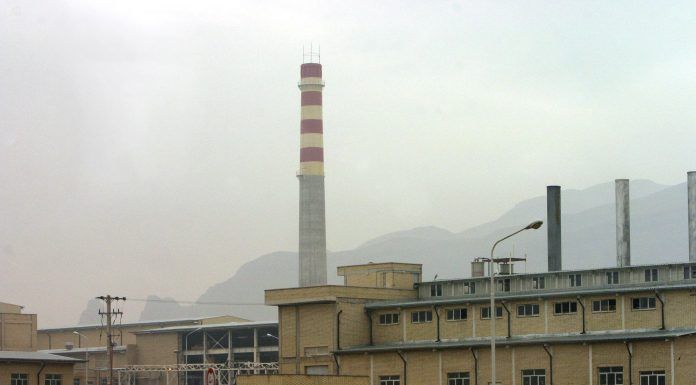By Francois Murphy and John Irish
VIENNA/PARIS, Nov 6 (Reuters) – Iran briefly held an inspector working for the U.N. nuclear watchdog in the Islamic Republic and seized her travel documents, diplomats familiar with the agency’s work said on Wednesday, with some describing it as harassment.
The incident appears to be the first of its kind since Tehran’s landmark deal with major powers was struck in 2015, imposing restrictions on Iran‘s nuclear activities in exchange for the lifting of international sanctions.
Hours after Reuters reported the incident, Iran confirmed that it had prevented an inspector from accessing its Natanz site – the heart of its uranium enrichment programme – last week, because of a concern that she might be carrying “suspicious material”, according to the Fars news agency.
The episode comes at a time of heightened friction between Iran and the West, with Tehran breaching the deal’s restrictions step-by-step in response to Washington’s withdrawal from the deal and renewed sanctions. The International Atomic Energy Agency is also in transition, with a new chief taking over next month.
The incident is due to be reported on at a meeting of the IAEA’s 35-nation Board of Governors on Thursday convened at short notice to discuss “two safeguards matters” not specified in the agenda, which was circulated on Monday.
“The agency wants to show how seriously they are taking this. It is a potentially damaging precedent,” one Western official said.
Three diplomats familiar with the agency’s work said the female inspector had her travel documents taken, and two said she was briefly held.
“REAL CONCERN”
An IAEA spokesman and Iran‘s ambassador to the agency declined to comment.
“There is a real concern that it will harm how (the IAEA) carry out their inspections in the future,” a European diplomat said.
The deal, which the IAEA is policing, allows for 130-150 inspectors from the agency designated for Iran. It also says Iran will grant the IAEA “regular access, including daily access as requested by the IAEA, to relevant buildings at Natanz”.
Thursday’s IAEA Board of Governors meeting was convened on Monday even though the board is due to hold a regular quarterly meeting just two weeks later.
The other safeguards matter due to be discussed on Thursday is Iran‘s less than full cooperation with the IAEA in explaining how uranium traces were found at a site in Tehran that Israel called a “secret atomic warehouse”, diplomats said.
Two months after Reuters first reported that samples taken at the site had shown traces of uranium, the IAEA for the first time on Wednesday told member states at a closed-door briefing that it had found uranium traces at a site it did not name, but diplomats at the meeting said it was clearly that site.
The IAEA confirmed to member states that the traces from samples taken in February were of uranium that was processed but not enriched, and that the explanations provided by Iran so far did not hold water, diplomats said.
The IAEA has long declined to confirm that it found uranium traces at the site, known as Turqazabad, which Iran has said was a carpet-cleaning facility. But its acting chief told Iran in September that “time is of the essence” in answering its questions, and he reported an improvement in Iran‘s cooperation last month.
IN A BIND
The incident with the inspector further complicates the task of the deal’s remaining signatories – France, Britain, Germany, Russia and China – who want to prevent deal total collapsing.
On Wednesday, however, Iran further raised pressure on those countries by announcing what would be a new breach of the deal – enriching uranium with the centrifuges it has at Fordow, a site that it dug in secret inside a mountain, apparently to protect it from potential aerial bombardment.
The deal banned enrichment at Fordow but allowed Iran to keep around 1,000 centrifuges there, turning the site into a “nuclear, physics, and technology centre” where no nuclear materials are present. One project being pursued there is the production of stable isotopes https://www.iaea.org/topics/nuclear-science/isotopes/stable-isotopes.
Iran has already breached the deal’s limits on the purity to which it enriches uranium, its stock of enriched uranium and its ban on using advanced centrifuges for enrichment rather than research, each step raising pressure on the remaining parties to the deal aiming to prevent its total collapse.
(Reporting by Francois Murphy and John Irish; Additional reporting by Babak Dehghanpisheh in Geneva; Editing by Andrew Cawthorne and William Maclean)


